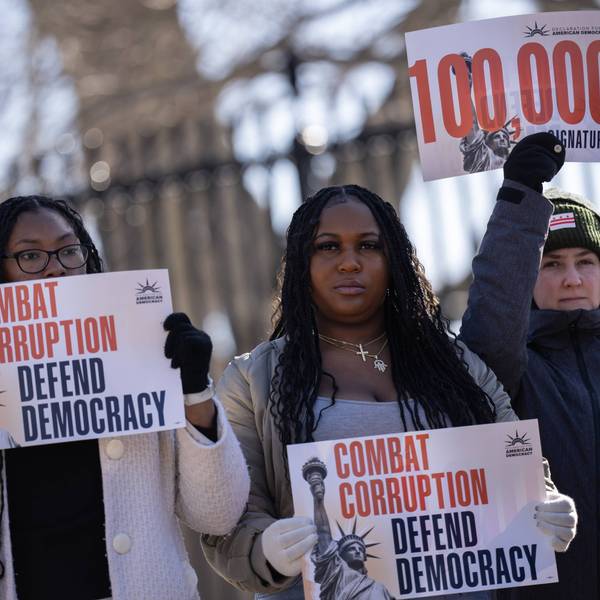The PBS documentary Dark Money, which paints "a rather harrowing portrait of democracy under threat" in the years that have followed the U.S. Supreme Court's 2010 Citizens United ruling, opens in New York City on Friday night following its festival premiere at Sundance earlier this year.
This "densely packed documentary," set in director Kimberly Reed's home state of Montana, "earnestly and obsessively addresses campaign finance reform, its history, and vital importance," declares The Hollywood Reporter.
A notable departure from her deeply person debut film Prodigal Sons, Reed tells the Guardian she was inspired to make Dark Money because, "when I heard about the Citizens United decision, you could just see that if the Supreme Court gave a green light to corporations to spend unlimited money in political campaigns, you could just see political power slipping out of the hands of the average citizen and into the hands of a handful of super-rich people."
Watch the trailer:
As The Hollywood Reporter outlines:
The central point is crystal clear: Since Citizens United, anything goes where elections are concerned, and the practitioners of shadowy politics are so skilled at covering their tracks that it's becoming increasingly difficult, and sometimes impossible, to identify who's backing whom. Dark Money effectively pinpoints how the smear campaigns function in an election; they paint with a wide brush, are often misleading or outright lies and often show up just days before voting, leaving the accused no time to respond or identify who is making the wild claims.
The film focuses on Montana, which instituted some of the country's strictest campaign finance rules after copper barons bought off politicians and destroyed large portions of the state's land during the early 20th century. After the Supreme Court's landmark ruling, Montana Attorney General Steve Bullock--who's now the governor--tried, but ultimately failed, to prevent the decision from affecting the state.
Despite that disappointment, Reed is optimistic about "bottom up" efforts to change campaign finance rules and the role that her film can play in unveiling how the secretive web of corporate-funded groups is undermining American politics.
"I think awareness of this is spreading. I see it taking root, and I see state legislators who are starting to focus on this a bit more," she says. "One of the things I hope our film does is raise awareness with the public that they can talk about this issue and hold their elected officials accountable. And make sure that they know that people are paying attention and they're voting on this well."
Dark Money is scheduled to be screened at select theaters throughout the country for the rest of the summer. Reed will be attending various screenings--including multiple in New York City this weekend--for Q&A sessions.




